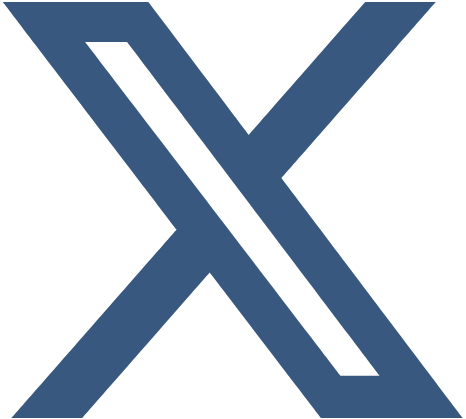GRABAR LAW OFFICE INVESTIGATES CLAIMS ON BEHALF OF INVESTORS OF OWLET, INC. (NYSE: OWLT) AS SECURITIES FRAUD CLASS ACTION SURVIVES MOTION TO DISMISS
Owlet, Inc. (NYSE: OWLT) sells its flagship product is called Smart Sock, which is a baby monitor that allows parents to track an infant’s oxygen levels, heart rate, and sleep trends in real time using the Owlet application.
On October 4, 2021, Owlet revealed that it had received a warning letter from the U.S. Food and Drug Administration (“FDA”), which stated that “the Company’s marketing of its Owlet Smart Sock product . . . renders [it] a medical device requiring premarket clearance or approval from FDA.” Owlet has not obtained such clearance or approval. Moreover, the FDA “requests the Company cease commercial distribution of the Smart Sock for uses in measuring blood oxygen saturation and pulse rate where such metrics are intended to identify or diagnose desaturation and bradycardia using an alarm functionality to notify users that measurements are outside of preset values.
A securities fraud class action complaint alleges that Owlet, via certain of its officers and directors, made materially false and/or misleading statements, as well as failed to disclose material adverse facts about the Company’s business, operations, and prospects. Specifically, Defendants failed to disclose to investors: (1) that Owlet was reasonably likely to be required to obtain marketing authorization for the Smart Sock because the FDA concluded it was a medical device; (2) that, as a result, Owlet was reasonably likely to cease commercial distribution of the Smart Sock in the U.S. until it obtained the requisite approval; and (3) that, as a result of the foregoing, Defendants’ positive statements about the Company’s business, operations, and prospects were materially misleading and/or lacked a reasonable basis.
On August 5, 2024, the United States District Court for the Central District of California determined that the Owlet defendants made a number of actionable material misrepresentations to the investing public.
First, in the “Regulatory Compliance” section of the Form S-4 filed with the SEC on March 31, 2021, Owlet certified that, since January 1, 2018, all products marketed and sold by Owlet were being sold “in compliance in all material respects with applicable FDA Laws”; Owlet held “all material Permits, including [] clearance or premarket approvals required by applicable FDA Laws”; “no Government Entity is considering … changing the marketing classification of the Company Products in any material respect”; Owlet had “not received any written notice or communication from any Governmental Entity … alleging or asserting material noncompliance with any applicable FDA Law, any warning or untitled letter … or similar written letter or notice alleging noncompliance,” and “there are no facts or circumstances reasonably likely to cause … a termination, seizure or suspension of the marketing or distribution … of any such product[.]”
The 10(b) Complaint alleges sufficiently that these statements were materially false or misleading as Owlet had previously received notice from the FDA stating the “Smart Sock appears to meet the definition of a [medical] device,” and that the FDA was “unable to identify any [FDA] clearance or approval number for the Owlet Smart Sock. We request that you provide us with the FDA clearance or approval number for the Owlet Smart Sock.”
Accordingly, the 10(b) Complaint pleads adequately that Owlet was sufficiently on notice that the FDA expected Owlet to obtain agency approval prior to the sale and distribution of the Smart Sock.
The Owlet Defendants do not offer evidence or argument that the FDA ever adopted Owlet’s contrary position that the Smart Sock was a general wellness device. Rather, the 10(b) Complaint establishes adequately that, as a result of the FDA’s 2016 letter, the FDA believed the Smart Sock should be classified as a medical device, thus requiring agency approval, and continued to so believe through 2021, when the FDA announced publicly its position that the Smart Sock qualified as a medical device and noted, “[s]ince 2016, the FDA has corresponded with Owlet that the [] Smart Sock meets the definition of a [medical] device[.]”
The Court further determined that the 10(b) Complaint adequately pleads the Owlet Defendants misrepresented they never received written communication from the FDA alleging non-compliance. That the registration form later qualified these statements by noting Owlet had communicated its belief “that the [] Smart Sock is not a medical device,” but that the FDA “could require us to obtain marketing authorization … to continue to sell the product,” is insufficient to negate falsity at this stage of the action, as these qualifications did not accompany the misleading statements, and, therefore, could give a reasonable investor an incorrect perception of Owlet’s true state of affairs vis-à-vis the FDA. Likewise, and for the same reasons, the 10(b) Complaint pleads adequately that the Owlet Defendants’ statement that “the [] Smart Sock is a consumer product and not a medical device” in the “Clinical Research Involving our Product” section of the Form S-4, constitutes a material misrepresentation.
"For the reasons stated, and because the 10(b) Complaint adequately alleges the Owlet Defendants received notice about the regulatory status of the Smart Sock from the FDA, “'a reasonable person would deem the inference of scienter cogent and at least as compelling as any opposing inference one could draw from the facts alleged.'”
Current Owlet (NYSE: OWLT) shareholders who have held Owlet stock since on or shortly after July 15, 2021, or via Sandbridge Acquisition Corporation (NYSE: SBG), can seek corporate reforms, the return of funds spent defending litigation back to the company, and a court approved incentive award at no cost to them whatsoever.
If you would like to learn more about this matter, you are encouraged to contact us at jgrabar@grabarlaw.com, or call 267-507-6085.

